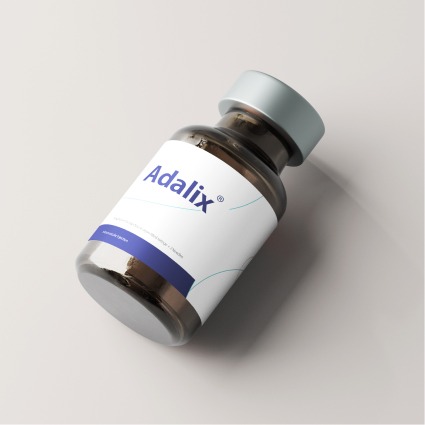The Gulf Cooperation Council (GCC) is undergoing a seismic shift in healthcare, and biologics are at the heart of this transformation. With a projected surge in market size from USD 21.57 billion in 2024 to USD 102.85 billion by 2035, the region’s biologics sector is not just growing—it’s rapidly evolving into a strategic pillar of national development.
This article explores the dynamics driving this growth, the challenges ahead, and why the GCC is uniquely positioned to emerge as a biotechnology hub in the next decade.
Understanding Biologics: A New Era of Medicine
Biologics are a class of advanced pharmaceuticals derived from living organisms. Unlike traditional chemical drugs, biologics include a broad range of products such as monoclonal antibodies, gene therapies, vaccines, and biosimilars. Their ability to target specific mechanisms in chronic and complex diseases has made them essential in the modern medical arsenal.
For regions like the GCC, which face rising rates of noncommunicable diseases, biologics offer an effective solution to long-term healthcare burdens.
Market Outlook: Robust Growth Backed by Strong Fundamentals
According to Market Research Future, the biologics market in the GCC was valued at USD 18.55 billion in 2023. A compound annual growth rate (CAGR) of 15.26% between 2025 and 2035 reflects both the high demand and favorable conditions for biologics expansion in the region.
Several structural and policy-level shifts are fueling this momentum:
Healthcare Reform and National Vision Programs
Across the GCC, government-backed national strategies like Saudi Vision 2030, UAE Centennial 2071, and Qatar National Vision 2030 are placing a strong emphasis on innovation in healthcare. These frameworks are prioritizing local biotechnology ecosystems through public-private partnerships, infrastructure development, and incentives for R&D.
Saudi Arabia, for example, is working aggressively to modernize its healthcare system and reduce dependency on imported drugs by investing in local production facilities and specialized biotech zones.
Increased Healthcare Expenditure
Healthcare spending is rising sharply across the region. Saudi Arabia alone allocates over 10.3% of its GDP to healthcare. The rationale is clear: an aging population, urbanization, and the prevalence of lifestyle-related diseases necessitate long-term investments in specialized care.
These investments directly support the deployment and development of biologics by ensuring that healthcare systems are equipped to manage storage, logistics, and patient monitoring for advanced therapies.
Demand Drivers: What’s Pushing Biologics Forward?
Chronic Disease Epidemic
Diseases such as diabetes, cancer, rheumatoid arthritis, and cardiovascular illnesses are alarmingly common in the GCC. According to the GCC Health Ministers’ Council, diabetes affects over 20% of the adult population in some member states.
Biologics are particularly effective in treating these chronic conditions. Their precision-based mechanisms allow for better disease management, fewer side effects, and in many cases, improved quality of life. As regional health authorities prioritize long-term disease control, biologics become indispensable.
Shift Toward Personalized Medicine and Biosimilars
Healthcare in the GCC is becoming more patient-centric. There’s growing awareness among physicians and patients about the benefits of personalized therapies, particularly in oncology and autoimmune disorders. This is also pushing the adoption of biosimilars, which offer cost-effective alternatives to original biologic drugs without compromising efficacy.
Key Market Trends
Several critical trends are shaping the evolution of biologics in the region:
Rise in R&D Collaborations
Governments and private sector stakeholders are investing in local R&D facilities, often through partnerships with global pharmaceutical giants. This not only boosts innovation but ensures that solutions are tailored to regional health challenges.
Local Manufacturing Capabilities
To reduce dependence on imports and increase security of supply, GCC nations are incentivizing domestic biologics production. These initiatives include special economic zones, tax exemptions, and fast-track approvals for facilities that meet regulatory standards.
Post-COVID Acceleration
The pandemic acted as a catalyst for the biologics sector. It brought vaccine production and advanced therapy development to the forefront of public health policy. The experience highlighted the importance of regional self-sufficiency in biopharmaceuticals and boosted investments in healthcare resilience.
Opportunities for Growth
The GCC biologics market presents multiple untapped opportunities:
Gene and Cell Therapy
Though still in the early stages, the region is showing interest in gene editing and cell therapies for rare and hereditary diseases. As regulatory frameworks mature and clinical capabilities expand, this could become a growth frontier.
Digital Health Integration
Biologics treatments often require careful administration and monitoring. The integration of telehealth, AI-based diagnostics, and remote patient management tools can significantly enhance treatment outcomes and accessibility.
Regulatory Harmonization
One of the current challenges is the fragmentation of drug approval processes across GCC member states. If harmonization is achieved, it will accelerate time-to-market for biologics and create a more streamlined commercial environment for pharmaceutical companies.
Challenges and Risks
Despite the promising outlook, the biologics sector in the GCC faces several challenges:
High Cost of Production
Biologics are expensive to develop and manufacture, often requiring specialized facilities and long timelines. This can restrict access, particularly in price-sensitive markets, despite government efforts to subsidize healthcare.
Regulatory Fragmentation
Each GCC country has its regulatory authority and processes. While some harmonization efforts exist (e.g., GCC-DR), full alignment remains a challenge for pharmaceutical companies seeking market entry across multiple countries simultaneously.
Skepticism Toward Biosimilars
Despite their clinical equivalence, biosimilars often face resistance from physicians and patients unfamiliar with the concept. Building awareness and confidence through education and real-world evidence is critical to broader adoption.
Competitive Landscape
Several major biopharma players are already active in the GCC market, including:
AbbVie Inc.
Pfizer Inc.
Johnson & Johnson
Biogen Inc.
Amgen Inc.
Samsung Bioepis
Biocon Ltd.
Dr. Reddy’s Laboratories
Teva Pharmaceutical Industries
Bristol Myers Squibb
These companies are leveraging strategic alliances, regional R&D investments, and local manufacturing partnerships to expand their presence in the GCC.
Future Outlook: A Regional Biotech Powerhouse?
As the market matures, the GCC could emerge as a global influencer in biotechnology and biologics. The alignment of political will, economic capacity, and health infrastructure offers a rare combination that’s conducive to rapid progress.
The next decade will likely see the GCC:
- Hosting more clinical trials and biotech startups
- Becoming a preferred destination for biotech investment in MENA
- Enhancing its role in global biopharma supply chains
What’s needed now is a sustained commitment to education, investment, and regulation, supported by collaborative networks that bring together academia, healthcare providers, industry leaders, and policymakers.
Final Thoughts
Biologics are no longer just an advanced treatment option; they are a strategic healthcare asset for the GCC. As the region continues to diversify its economies and modernize its public services, biologics will play a critical role in shaping a more resilient and responsive healthcare system.
For pharmaceutical companies, policymakers, and investors, the message is clear: the GCC biologics market is not just growing; it’s transforming.

